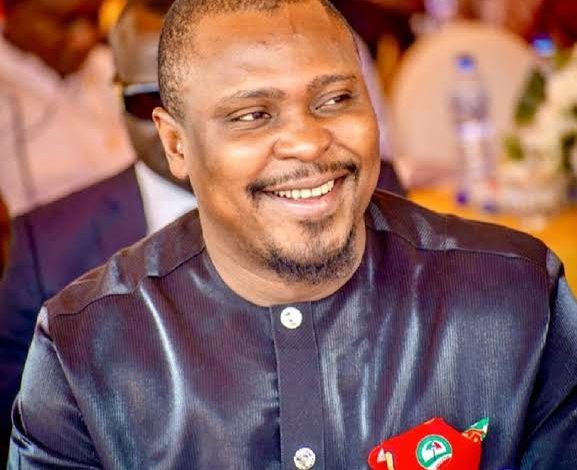News
$22.7bn Loan Request Meant For Infrastructure -FG

The Federal Government has said that the proposed amount of the 22.7 billion dollars requested by President Muhammadu Buhari in the External Borrowing Plan (2016 to 2018) would be invested in infrastructure development and not consumption.
Minister of Works and Housing, Mr Babatunde Fashola, Minister of Finance, Mrs Zaynab Ahmed and Minister of State, Transport, Ms Gbemisola Saraki made this known in a public hearing before the joint house committees yesterday.
The house committees are Aids, Loans and Debt Management, and Rules and Business. According to the Debt Management Office, Nigeria’s Total Public Debt Portfolio as at June 30 stood at $83.88 billion (¦ 25.7 trillion).
The 8th National Assembly had received the proposed projects for 2016 to 2018 Medium Term (Rolling) External Borrowing Plan put at 30 billion dollars.
The ministers, however, presented the same proposal at 22.7 dollars and gave reasons why the country should have funds as soon as possible.
They emphasised that the loans would promote infrastructure development and job creation.
The Minister of Finance said that the country had a revenue-generating challenge and stressed the need to invest in sustainable projects that would generate revenue. Ahmed said the loan would be “strictly for infrastructure development.
“So that we can address the deficit that we have. We know we must comply with some criteria; every kobo borrowed will be judiciously used,” she said.
Also, Minister of Works and Housing said Nigeria’s debt portfolio and debt service were being considered.
Fashola emphasised that investing in capital projects were needed to help the country achieve a self-sustaining economy.
“As we cannot ignore the concerns about debts, so we cannot ignore the concerns and demands for the provision of life-sustaining infrastructure.
“We have passed a budget of several hundreds of billions, but the reality is that over four years, we have never received full funding for any budget. And the reason is simple, there is a deficit, and we cannot finance it.
“Some of the roads we are investing in will last for upwards of 20 to 30 years if well maintained and not abused. For rail assets, usually, the tracks will last for at least 100 years. Power plants like the Mambilla will be there for many decades.
“So, we will be spending today’s money to secure tomorrow’s assets that will sustain our growing population and growing economy.”
The Minister of State for Transport also said there was the need to complete Kano-Lagos and Niger Delta coast rails.
Meanwhile, t he Debt Management Office says the public debt stock of the country is a cumulative figure of borrowings by successive governments over many years.
The DMO said this in a statement released in Abuja yesterday .
It said that it was not appropriate to attribute the Public Debt Stock to any particular administration.
It, however, explained that President Muhammadu Buhari submitted a request to the National Assembly for approval of the 2016 – 2018 Medium Term External Borrowing Plan for the sum of 22.718 billion dollars.
“This request is not a new one as being perceived but rather it represents those borrowings which have been submitted to the National Assembly but are yet to be approved before the expiration of the eighth Assembly.
“The requests in the Plan are proposed borrowings from multilateral and bilateral lenders.
“The proposed loans are concessional, semi-concessional, long-tenored and are for the purpose of financing infrastructure and other developmental social projects.
“All of which have multiplier effects in terms of job creation, business opportunities and overall increase in Nigeria’s Gross Domestic Product.
“Also, the benefits are long term and will serve generations of Nigerians.
“The proposed New Borrowing is consistent with the subsisting Debt Management Strategy which seeks to replace short term high –interest cost domestic debt.
“With low interest long term external debt and is one of the measures that is being implemented to moderate the level of Debt Service.
“The achievements in this regard are evidenced in the declining share of Domestic Debt in the Total Public Debt from over 83 per cent in December 2015 to about 68 per cent in June 2019,” it explained.
The statement noted that Nigeria had a ceiling of 25 per cent on the total public debt stock to GDP which is Debt to GDP and it had operated within.
It said that the ratios for Dec. 31, 2018 and June 30, 2019 were 19.09 and 18.99 per cent respectively.
“The Debt Service to Revenue Ratio (Debt Service/Revenue) has however, been higher than desirable and provides strong justification for the current drive to increase Oil and Non-Oil Revenues significantly.
“The debt service to revenue for the years 2017 and 2018 were 57 per cent and 51 per cent respectively.
“The debt service figures have grown as a result of the increase in the Debt Stock and relatively high domestic Interest Rates.
“Still on the issue of debt sustainability, when compared to a number of countries, Nigeria’s Debt to GDP is relatively low but the Debt Service to Revenue is relatively high.
“The United States of America, United Kingdom and Canada had Debt/ GDP ratios of 105, 85 and 90 per cent in 2017 which were much higher than that of Nigeria.
“But because they generate adequate revenues, their debt service to revenue for the same year were 12.5, 7.5 and 7.5 per cent respectively.
“The case was also similar for Brazil, South Africa, Kenya and Mexico who had higher Debt to GDP than Nigeria (74, 53, 57 and 46 per cent respectively but had lower debt service to revenue of 32.20, 11.4, 13.2 and 13.6 per cent respectively.
“This is clear evidence that Nigeria’s revenues are low. This is further demonstrated by Nigeria’s tax to GDP ratio of only six per cent in 2018 compared to Kenya’s 15.7, Morroco 21.8, Cameroon 12.2 and South Africa 27.5 per cent in 2017″
The statement pointed out that the above figures attested to the fact that Nigeria had a revenue challenge rather than a debt problem.
According to the statement, it is in this regard that all efforts are in top gear to increase revenues through measures such as the Finance Bill and Strategic Revenue Growth Initiative.
“Overall, the justification for the borrowing is that many of the projects in the plan are for the development of infrastructure in the areas of roads, railways, waterways and power which will help to unleash the potential of the Nigerian economy.
“Other loans such as those for the educational sector will contribute to the development of Nigeria’s human capital, while loans for Agriculture will be used to diversify the economy.
“There will also be funding for Development Finance Institutions to enhance access to finance for Micro, Small and Medium Scale Enterprises.”
News
Bonny-Bodo Road: FG Offers Additional N20bn, Targets December Deadline

The Federal Government has agreed to offer additional N20.5 billion for the completion of the Bonny-Bodo road project in December.
The government, however, said if the construction company, Julius Berger, was not ready to accept the offer, the contract will be terminated.
Minister of Works, David Umahi, said this during a meeting with the Managing Director of Julius Berger, Lars Ritcher and members of Bodo-Bonny Road Peace Committee, on Wednesday in Abuja.
The reports that Julius Berger had requested asking for a N28 billion variation on the 82 per cent completed project.
The company hinged its request on the rise in exchange rate, construction materials, and diesel among others.
Umahi, however, said the government was willing to provide N20 billion out of the N28 billion that Julius Berger requested for.
According to him, the Bonny-Bodo road contract which was initially awarded at the cost of N120 billion in 2015, was later varied at N199 billion with a completion dateline of December 2023, which has since elapsed.
The Tide’s source recalls that in 2017, an agreement between the Federal Government, Nigeria Liquefied Natural Gas (NLNG) and Julus Berger on modalities for funding the project cost of N199.923 billion, without any further increase.
“If you do not accept the Federal Government’s offer by Friday and resume work on the site, the previously expired 14-day ultimatum for termination of project will be enforced.
“I want to let you know that we are the client. No contractor will dictate for this ministry, and there is no job that is compulsory that a particular contractor must do.
“We give you an offer. If you do not like the offer, you walk away. You don’t force us or we don’t force you.
“Agreement of contractual relationship is a mutual understanding,’’ the minister said.
Umahi said that had Julius Berger adhered to the project timetable, the project would have been completed on schedule before the impact of foreign exchange.
“Our position is very simple, we reject the conditions of Julius Berger totally and we ask Berger to please go back to the site to complete the project based on our offer.
“Our offer is unconditional and we say, accept or reject, so you cannot subject our offer to your conditions ,’’ he added
Umahi said the company should be humble in its dealings and exhibit solidarity during challenges.
Earlier, Richter had explained that the company suspended work on the site to seek some clarifications from the ministry.
According to him, the company asked for the augmemtation of N28 bilion because as at the time the contract was awarded the exchange rate was N305 to a dollar and diesel was N350 eor litre.
“We will still require some outstanding materials; that means that the initial agreement can’t fly because the variation of project is not sufficient and the exchange rate is also not in our favour to compensate the additional costs.
“That is why we decided to go back to our original proposal of the augmentation. Augmentation is a very normal process for all contracts,” the managing director said.
Chief Abel Attoni, Palace Secretary, Bonny Kingdom, expressed gratitude to President Bola Ahmed Tinubu over the decision to complete the Bodo-Bonny road project.
Attonu urged the parties to be patriotic and make the necessary sacrifice for the actualisation of the project.
News
Court Vacates Arrest Warrant Against Ehie, Five Others

The Federal High Court, sitting in Abuja, yesterday, set aside the warrant of arrest against Rt. Hon. Edison Ehie, the Chief of Staff, Government House, Rivers State, and five others.
Justice Emeka Nwite stated this while delivering his ruling in an application seeking to vacate the warrant of arrest which he issued on January 31, 2024.
The Judge said he was misled by the police in ordering the arrest of Ehie in connection with the burning of the Rivers State House of Assembly on October 30, 2023.
The Police, had told the court that Ehie and five others masterminded the bombing of the Rivers State House of Assembly amid a plot to impeach Rivers State Governor, Siminalayi Fubara.
The five others are Jinjiri Bala, Happy Benedict, Progress Joseph, Adokiye Oyagiri, and Chibuike Peter, alias Rambo.
Justice Emeka Nwite while setting aside the warrant said it has now become a mere academic exercise.
The judge further granted same to the 2nd to 5th Defendant/Applicant in same suit.
Femi Falana, SAN, and Oluwole Aladedoye, SAN, who appeared for the defendants in separate suits, held that the court lacked the jurisdiction to have granted the order.
While Falana filed a motion seeking an order to set aside the January 31 order by Justice Nwite, Aladedoye applied for a stay of execution of the arrest order.
In a motion marked: FHC/ABJ/CS/112/2024 dated February 2 and filed on February 7 by Falana, Ehie sought two orders, including “an order setting aside the order made on January 31 for want of jurisdiction.
“An order of this honourable court staying the execution of the order made on the 31st January 2024, pending the hearing and determination of this application.”
Giving six grounds of argument, Falana argued that the complainant had not filed any criminal charge or motion before the court.
The senior lawyer argued that the court lacked the territorial jurisdiction to entertain the ex-parte application as the alleged offences of conspiracy, attempted murder, murder and arson took place in Port Harcourt, the state capital.
“He submitted that the court lacked the vires to grant an application to arrest and declare his clients wanted in respect of the alleged offences.
“The complainant/respondent (IG) did not adduce evidence of terrorism in the affidavit in support of the application.
“The complainant/respondent did not cite any section of the Terrorism Prevention Act, 2013 (as amended) alleged to have been contravened by the applicants,” he argued.
Aladedoye in a motion on notice dated and filed February 9, on behalf of the five defendants, sought two orders, including
“an order staying execution or further execution of the order(s) of this honourable court made on the 31st of January, 2024, pending the hearing and determination of the appeal filed by the applicants.
“An order of injunction restraining the complainant from carrying out or further carrying out the orders of this honourable court made on the 31st January 2024, pending the hearing and determination of the appeal filed by the applicant in this case.”
Giving a three-ground argument, Aladedoye said that a notice of appeal had already been filed against Justice Nwite’s orders.
According to the senior lawyer, the notice of appeal contains grounds that challenge the jurisdiction of the honourable court.
The Inspector-General had, in a charge marked: FHC/ABJ/CR/25/2024, arraigned the defendants on a seven-count criminal charge bordering on terrorism and murder.
News
13 Students Bag First Class, 182 PhD As IAUOE Graduates 5,550, Today
The authorities of Ignatius Ajuru University of Education (IAUOE), Rumuolumeni, in Rivers State, have stated that 13 students will be graduating with first class while 182 graduands will bag Ph.D during the 42nd convocation ceremony of the university billed to hold today and tomorrow.
The Acting Vice Chancellor of the University, Prof. Okechuku Onuchuku, disclosed this during pre-convocation press briefing held in his office, yesterday, to unveil the programme for the convocation ceremony.
Onuchuku said that the 13 students were among the 4,653 graduands expected to graduate for the 2022/2023 academic session with first degree, while 897 students will be graduating with postgraduate degrees.
The Acting Vice Chancellor while giving the breakdown stated that 13 students made first class, 890 students bagged second class upper while 2,739 students had second class lower for first degree.
He further stated that 182 graduands bagged PhD, 667 got master’s degree and 48 got postgraduate diploma, adding that the convocation ceremony will hold today and tomorrow for first degree graduands and postgraduate graduands respectively.
He said that a total of 47 programmes out of the 54 programmes being undertaken at the first degree levels had been given full accreditation by the National University Commission (NUC) as well as all the programmes at the postgraduate school.
“We have ensured that our programmes both at the first degree and post graduates are in line with the NUC stipulated guidelines and speculations. We have also ensured that we are in line with both our academic and administrative policies,” he said.
Prof. Okechukwu urged the graduating students of the institution to always remember to use thier positions to help their alma mater as well as project the institution in a good image in the larger society.
“Try to ensure you finish any project you want to do, evaluate it first and avoid unfinished or abandoned projects. We will be graduating first degree graduands on Friday while Saturday will be for postgraduates, “he added.
Prof. Onuchukwu also said his administration had achieved a lot since he assumed office as Acting Vice Chancellor, stressing that his administration had improved on the welfare of the staff and the students.
“There are a lot of projects completed in the school; we have also given scholarship to some students and also encouraged departments to do same. We also impacted positively on our host communities”, he said.
Akujobi Amadi
-
Niger Delta2 days ago
APC S’South Executives Strategise For Victory
-
Business2 days ago
Empty ATMs: ‘Entrepreneurs, Customers, Banks, PoS Operators Accountable’
-

 News2 days ago
News2 days agoUNN Begins Innovative Forum To Reduce Graduate Unemployment
-
Politics2 days ago
‘Fubara, Dev Game Changer For Rivers’ Economic Growth’
-
Sports1 day ago
Okpekpe Road Race: Organisers Expect More
-
News2 days ago
Telcoms Seek Tariff Hike To Offset Soaring Costs
-
Nation2 days ago
Ogun PDP Chairman, Adebutu Trade Blames Over Electoral Defeat
-
Niger Delta2 days ago
PIA: Bayelsa Ready For Littoral Communities’ Mapping Exercise

